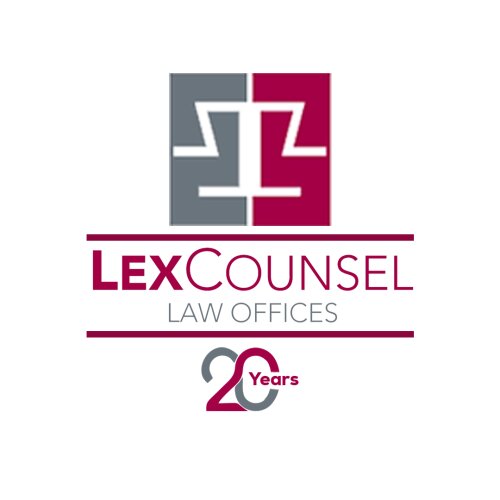Best Funds & Asset Management Lawyers in Bhubaneswar
Share your needs with us, get contacted by law firms.
Free. Takes 2 min.
List of the best lawyers in Bhubaneswar, India
About Funds & Asset Management Law in Bhubaneswar, India
Funds and asset management law refers to the legal framework governing the operation, management, regulation, and compliance of collective investment schemes, mutual funds, private equity, venture capital, hedge funds, and the stewardship of individual or institutional assets. In Bhubaneswar, India, this legal field is shaped by both national regulations and local practices. Key legislation includes the Securities and Exchange Board of India (SEBI) Act, the Indian Trusts Act, and investment fund regulations. Bhubaneswar, as a growing urban center and capital city of the state of Odisha, is witnessing steady interest in managed funds and asset investments from both businesses and individuals. Legal expertise is critical for ensuring compliance, mitigating risk, and maximizing returns.
Why You May Need a Lawyer
Engaging a lawyer in the field of funds and asset management offers protection and clarity for both investors and fund managers. Common situations where legal help is required include:
- Setting up a new investment vehicle, such as a mutual fund or trust
- Ensuring compliance with SEBI and Reserve Bank of India (RBI) guidelines
- Drafting and reviewing fund management agreements and disclosure documents
- Advising on tax-efficient investment and fund structuring
- Dispute resolution between investors and fund managers
- Regulatory investigations or audits
- Due diligence for mergers, acquisitions, or restructuring of asset management entities
- Managing estate assets, wealth, and succession planning
- Guidance on foreign direct investment (FDI) norms in funds
- Addressing issues of investor fraud, mismanagement, or non-compliance
The legal landscape can be complex and constantly evolving, so early legal involvement can prevent future liabilities and ensure your interests remain protected.
Local Laws Overview
In Bhubaneswar, funds and asset management activities are influenced by several key laws and local practices:
- SEBI Regulations: The Securities and Exchange Board of India regulates collective investment schemes, mutual funds, and alternate investment funds. Entities must comply with registration, disclosure, and reporting requirements.
- Indian Trusts Act, 1882: Trusts are a common structure for asset management, particularly for family and charitable purposes. Odisha follows the national statutes, but stamp duty and registration requirements may vary locally.
- The Companies Act, 2013: Governs companies involved in investment and asset management, including incorporation, governance, and winding up.
- Income Tax Regulations: Investors and fund managers must comply with tax obligations, including capital gains and withholding taxes, as per the Income Tax Act, with local assistance on state surcharges and professional tax issues.
- State Stamp Act and Registration Rules: Transfer of assets, registration of trusts, and property pooling are impacted by state-specific stamp duties and processes which are administered locally in Bhubaneswar.
- RBI Guidelines: Foreign investment and cross-border transfer of funds are subject to Reserve Bank of India policies, including those on FDI, Anti-Money Laundering (AML), and Know Your Customer (KYC) norms.
It is advisable to consult a local lawyer or expert who understands both national and Odisha-specific requirements for smooth and lawful operation.
Frequently Asked Questions
What types of funds are commonly available for investors in Bhubaneswar?
Investors can access mutual funds, unit-linked insurance plans, alternative investment funds, pension funds, and private trusts. Each type has distinct objectives, risk profiles, and regulatory requirements.
Do I need approval from SEBI to start an asset management company?
Yes, SEBI approval is mandatory for starting any mutual fund, asset management, or collective investment scheme. The process involves meeting eligibility, net worth criteria, and fulfilling disclosure norms.
Are there any state-specific tax implications for fund investments in Odisha?
While most taxation is governed by central laws, there may be state-level stamp duties and professional taxes that apply, especially for asset transfers and property pooling in Odisha.
Can international investors participate in Bhubaneswar-based funds?
Yes, but cross-border investments are regulated by SEBI, RBI, and FEMA guidelines. Compliance with FDI policy, reporting, and KYC norms is necessary. Specific approval may be required depending on the fund type.
What are the main risks associated with funds and asset management?
Market volatility, mismanagement by fund managers, regulatory non-compliance, fraud, and insufficient disclosure are common risks. Legal due diligence and robust agreements can help mitigate these risks.
Who regulates asset management activities in Bhubaneswar?
The primary regulator is SEBI, but RBI, Ministry of Corporate Affairs, and state authorities like the Registrar of Companies and Sub-Registrar offices also play key roles depending on the business structure and activities.
How are disputes resolved between investors and fund managers?
Disputes can be resolved through contractual dispute resolution mechanisms, SEBI-established mediation and arbitration, or litigation in local civil courts. Arbitration and SEBI adjudication are often preferred for speedier resolution.
What are KYC requirements for investors?
Investors must provide identification, proof of address, PAN (Permanent Account Number) card, and other documents to meet KYC norms. These requirements are in place to prevent money laundering and ensure transparency.
Can a lawyer help with portfolio restructuring or diversification?
Yes, lawyers can advise on legal and tax implications of portfolio diversification, restructuring, or switching assets across different funds or asset classes, ensuring compliance and minimizing tax liabilities.
Are there special rules for Non-Resident Indians (NRIs) investing in funds in Bhubaneswar?
Yes, NRIs must comply with FEMA, RBI, and Income Tax norms. There are specific repatriation, reporting, and taxation rules which differ from those applicable to resident investors.
Additional Resources
If you need further information or assistance in Bhubaneswar, the following resources may be helpful:
- Odisha Investors Facilitation Centre - for queries related to investment in the state
- Securities and Exchange Board of India (SEBI) - for updates on regulations and investor complaints
- Reserve Bank of India (RBI) - for information on FDI, KYC, and cross-border asset management
- Registrar of Companies, Cuttack (Odisha Jurisdiction) - for company registration and compliance matters
- Local bar associations and registered law firms specializing in corporate, banking, and finance law
- Institute of Chartered Accountants of India (ICAI), Bhubaneswar Chapter - for professional financial and tax advice
- District Sub-Registrar Office, Bhubaneswar - for asset registration, property pooling, and trusts
Next Steps
If you need legal assistance in funds and asset management in Bhubaneswar, consider the following steps:
- Gather your investment or fund-related documents and identify your legal objectives
- Shortlist legal professionals or firms with expertise in funds and asset management
- Schedule an initial consultation to discuss your requirements and understand the legal processes involved
- Request information on fee structures, timelines, and scope of legal services offered
- Clarify all regulatory, tax, and compliance issues relevant to your case
- Engage a lawyer to review, draft, or negotiate agreements and to provide ongoing advisory or representation as needed
- Maintain regular communication with your lawyer to stay updated on new regulations or changes that might affect your investments
Proactive legal action will help you safeguard your interests, remain compliant, and achieve successful management of your funds and assets.
Lawzana helps you find the best lawyers and law firms in Bhubaneswar through a curated and pre-screened list of qualified legal professionals. Our platform offers rankings and detailed profiles of attorneys and law firms, allowing you to compare based on practice areas, including Funds & Asset Management, experience, and client feedback.
Each profile includes a description of the firm's areas of practice, client reviews, team members and partners, year of establishment, spoken languages, office locations, contact information, social media presence, and any published articles or resources. Most firms on our platform speak English and are experienced in both local and international legal matters.
Get a quote from top-rated law firms in Bhubaneswar, India — quickly, securely, and without unnecessary hassle.
Disclaimer:
The information provided on this page is for general informational purposes only and does not constitute legal advice. While we strive to ensure the accuracy and relevance of the content, legal information may change over time, and interpretations of the law can vary. You should always consult with a qualified legal professional for advice specific to your situation.
We disclaim all liability for actions taken or not taken based on the content of this page. If you believe any information is incorrect or outdated, please contact us, and we will review and update it where appropriate.









